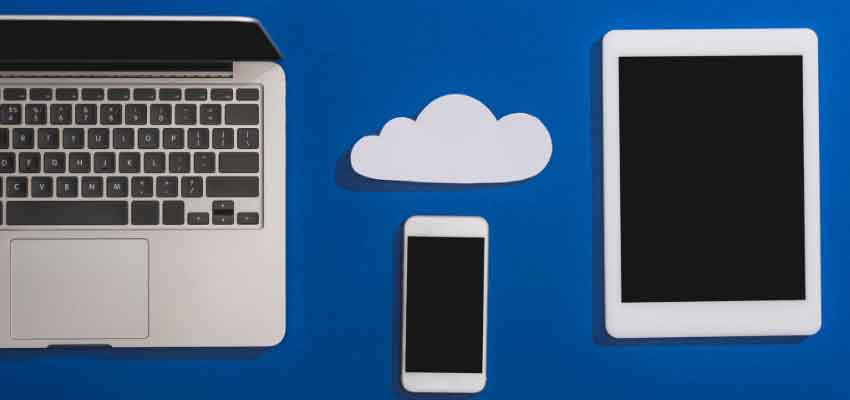Show:
Benefits And Uses Of Cloud Computing
Cloud Computing
Imagine a virtual space where users all over the world are connected through networks. Cloud computing has revolutionised the world through its exponentially rising competitiveness in its cost, flexibility, elasticity as well as its optimal utilization of resources. We can use cloud computing to help us achieve new heights in our businesses as well as in our everyday lives. If you’d like to know more about how cloud computing works, consider taking a course to obtain an aws cloud certification.

1. Infrastructure as a Service and Platform as a Service
There are several types of cloud computing services that are used today. Infrastructure as a service (IaaS) allows organisations to save on money to obtain, manage and maintain IT infrastructures. They often use a pay-per-use format to do so. Platform as a Service (PaaS) provides companies with an opportunity to develop applications quickly on a platform that is ready for use.
2. Private And Hybrid Clouds
There are many reasons to use clouds and two such scenarios are for companies to explore the methods to assess their applications that they wish to deploy through a cloud. To be more exact, companies often use public clouds to do so. In a public cloud, the cloud provider helps to manage the infrastructure and rent it out to companies for them to use. They mainly use pricing models based on a subscription fee or based on their usage.
In the event that companies are testing and developing their software, a hybrid cloud approach provides space for testing the workloads of applications. This sets the ground for them to provide some form of comfort in an environment, minus all the initial financial investments that may go to waste if workload testing fails.

Hybrid clouds are a computing environment which helps users connect an on-premise private cloud to a third-party public cloud into a single infrastructure for users to run their applications. It can also be used to expand businesses during times where there is limited peak usage. They are preferred to hosting large websites that might have low traffic. Companies may use hybrid clouds if they don’t experience high traffic on a daily basis; instead, they can simply pay as they go to get additional capacity as and when it is required.
3. Test And Developments
One of the best uses of the cloud is to test and develop an interface. This means that you need to ensure you have a budget and are able to set up your website or software through the physical assets and with sufficient employees to help you. After that, you will have to set up your software. This can take quite a period of time and with loads of manpower for your baby project to be finished.

Now, there are many ready-made sites that can be reached within a few taps on your keys with cloud computing. This is usually made through automation in virtualized and physical resources.
4. Big Data Analytics
Another use of cloud computing is in its power to scan through large overflowing amounts of unstructured as well as structured data to provide you with some insights that can be beneficial for your businesses. This is crucial as many companies do not truly understand what their customers want or how to creatively reach out to them in a way that appeals to them as well.
Today, many sales companies are using big data to gain insights from the buying patterns of their customers. This empowers them to better target the right customer at the right time through advertisements and marketing communication campaigns. Many companies are also using cloud computing on social networking platforms like Instagram to get market research data on behavioral patterns that they can use to improve their businesses.

If you’re a business owner that is looking to improve your business, consider using cloud computing to give yourself a more competitive edge in the market. But at the same time, be aware of issues such as data privacy and try not to let yourself get in the way of the law.
5. File Storage
This is probably one of the most commonly known uses of the cloud. You can not only store your documents but also be free to retrieve them from any online interface. The design interface of these platforms is often easy to navigate due to its high availability, scalability, speed and security. While companies use up a lot of space, they actually only pay for the cloud storage that they are using and with minimal stress and fears of overseeing all the maintenance of the infrastructures.
Some companies with very high forms of privacies may choose to host their data on their premises based on their regulatory compliance requirements. These pieces of information are hosted by third parties and stored in virtualized pools, based on the specification requirements of their customers.
6. Disaster Recovery
We all remember the disastrous time where we dropped our phone and lost all our precious photos and videos of our family and loved ones. The cloud provides us with solutions to help save this mini-crisis. It allows us to have a quicker recovery from a variety of physical locations at a cheaper price as compared to traditional DR sites with more traditional systems.
7. Backing Up Your Data
Gone are the days of bulky hard drives for us to back up our computer information, sitting at our desktops for hours. They are not only slow, limited and may be subjected to malfunctions and other problems. You don’t have to worry about manually backing your data either now with the cloud as it has greatly improved our lives for the better.
With systems such as Apple iCloud, you are able to automatically upload your information to anywhere on the internet. What’s more is that with the proper procedures and a small cost, you won’t face any issues with security, availability and capacity anymore.
Conclusion
There are surely many other uses of cloud computing that cannot be summarised in just one article but one thing is for sure is that we can all benefit from the use of cloud computing as compared to other traditional approaches to IT issues and can rely on big data analytics as well as mobile computing.

 Return to Previous Page
Return to Previous Page








